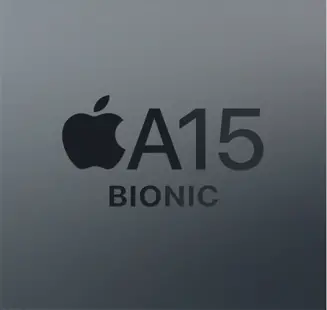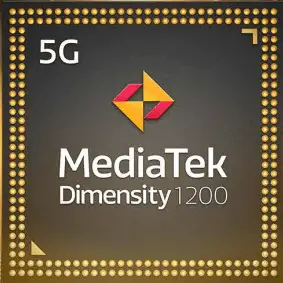Apple A15 Bionic Chip vs Mediatek Dimensity 1200
We have compiled a detailed comparison of the recently introduced
A15 Bionic Chip vs Dimensity 1200
SoCs, designed by
Apple and Mediatek respectively. Our comparison outlines the benefits and
limitations of these
6-core and 8-core
processors, focusing on
their performance across
Geekbench, Antutu, and
3DMark benchmarks, and
technical aspects.
Review
General comparison of performance, power consumption,
and other
indicators
CPU Performance
Evaluation of Single-Core and
Multi-Core Processor Performance
Gaming Performance
Gaming and OpenCL/Vulkan
Performance of the Graphics Processing Unit (GPU)
Battery life
Energy Efficiency in Battery Usage
Tech Insist Score
Overall Performance Rating of the
Chip
Key Differences
Main differences and advantages of each chip
Pros of A15 Bionic Chip
Pros of Dimensity 1200
Benchmarks
Evaluating performance through competitive testing in
leading benchmarks.
AnTuTu 10
The AnTuTu Benchmark evaluates CPU, GPU, RAM, and I/O
capabilities across various scenarios.
CPU
209204
170589
GPU
351594
233643
Memory
118044
118786
UX
130276
145445
Total score
809118
668463
GeekBench 6
The GeekBench test shows raw single-threaded and
multithreaded CPU
performance
3DMark
A cross-platform benchmark that assesses graphics
performance in Vulkan
(Metal)
3DMark Wild Life Performance
Stability
82%
93%
Graphics test
56 FPS
25 FPS
Score
9524
4179
Specifications
Full list of technical specifications of A15 Bionic Chip and Dimensity
9300
Architecture
2x 3.23 GHz – Avalanche
1x 3 GHz – Cortex-A78
Cores
6
8
Base Frequency
2020MHz
2000MHz
Turbo Frequency
3230MHz
3000MHz
Instruction set
ARMv8.5-A
ARMv8.2-A
L2 cache
256 KB
32 KB
L2 cache
32 MB
0.32 MB
L3 cache
-
8 MB
Process
5 nanometers
6 nanometers
Transistor count
15 billion
-
TDP (Sustained Power Limit)
6 W
10 W
GPU name
Apple GPU
Mali-G77 MC9
Architecture
-
Valhall
GPU frequency
1200 MHz
850 MHz
Pipelines
5
9
Shading units
640
144
Total shaders
1280
288
FLOPS
-
-
Vulkan version
-
1.1
OpenCL version
-
2.0
DirectX version
-
12
Neural processor (NPU)
Neural Engine
Yes
Memory type
LPDDR4X
LPDDR4X
Memory frequency
4266 MHz
4266 MHz
Bus
-
-
Max bandwidth
34.1 Gbit/s
29 Gbit/s
Max size
6 GB
16 GB
Storage type
NVMe
UFS 3.1
Max display resolution
2732 x 2048
2520 x 1080
Max camera resolution
-
1x 200MP, 2x 32MP
Video capture
4K at 60FPS
4K at 30FPS
Video playback
4K at 60FPS
4K at 30FPS
Video codecs
H.264, H.265, VP8, VP9, Motion JPEG
H.264, H.265, AV1, VP9
Audio codecs
AAC, AIFF, CAF, MP3, MP4, WAV, AC-3, E-AC-3, AAX, AAX+
AIFF, CAF, MP3, MP4, WAV
Modem
-
-
4G support
LTE Cat. 24
LTE Cat. 19
5G support
Yes
Yes
Download speed 5G
Up to 7500 Mbps
Up to 4700 Mbps
Download speed 4G
-
Up to 1600 Mbps
Upload speed 5G
Up to 3000 Mbps
Up to 2500 Mbps
Upload speed 4G
-
-
Wi-Fi
6
6
Bluetooth
5.0
5.2
Navigation
GPS, GLONASS, Beidou, Galileo, QZSS
GPS, GLONASS, Beidou, Galileo, QZSS, NAVIC

